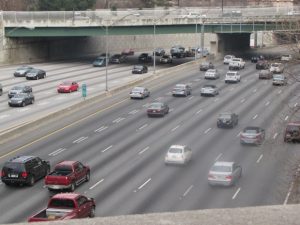As Fort Myers personal injury attorneys, we handle many cases that involve third-person liability. Regardless of the type of incident – whether it’s a construction accident or a car accident or a slip-and-fall – there are four necessary elements one must prove in order to prevail. Those are:
Absent a link between breach of duty and damages, there is no chance of success in a personal injury lawsuit. That means causation is a vital element to any case. For example, you have to be able to show the neck pain you are experienced was directly caused by the accident. However, a case can get more complicated when there is some superseding intervening act that a defendant could argue absolved the defendant from liability.
For example, in the case of Batista v. City of Miami, Florida’s Third District Court of Appeal ruled that a remote condition or conduct that allows only the occasion for someone else’s supervening negligence is not a proximate cause of the result of subsequent negligence. It’s this same principle that arose in the case of Ready v. RWI Transportation. This was a recent Mississippi Supreme Court case that concerned two accidents that that occurred on the same highway about an hour apart.
According to court records, the first accident occurred around 7:13 p.m. as a tractor-trailer driver, employed by defendant company, attempted to make a left lane change and struck a pickup truck on its side, causing the pickup to overturn and come to rest in the northbound lanes. A state highway patrol officer arrived about 20 minutes later and secured the scene, activating his blue flashing lights and shutting down all lanes of northbound traffic. A police officer was called to assist, as was a tow truck. About one hour after the accident, the trooper re-opened both lanes of traffic and left the scene.
The second accident occurred about a half mile down the road, shortly before the crash scene was cleared. Plaintiff was in a pickup truck and collided with the rear of a UPS trailer that had stopped with the rest of the accident traffic. The same officer who responded to the first scene made it to the second at 8:21 p.m.
The driver of the pickup involved in the second crash filed a car accident lawsuit against the tractor-trailer employer/ driver for claims of negligence and negligent entrustment. Plaintiff argued it was foreseeable that the driver’s negligence which led to the first accident could cause another accident at a later time. However, defendants argued the foreseeability of possible harm to someone from the assumed negligence of the defendant can’t be transformed into a duty of care to this plaintiff because of the fact that it occurred a half mile away and and hour later.
The district court ruled that while defendant did have a duty to use reasonable care in the operation of his truck, that duty can’t be stretched in time and space in order to provide a duty to the plaintiff or causation for his injuries.
The state supreme court concluded that if it assumed the tractor-trailer driver’s failure to properly operate his rig as negligence, that negligence only allowed for the condition or occasion from which plaintiff’s injuries were incurred, but it didn’t put into motion the negligence and wrongful agency that caused his injury.
Call Associates and Bruce L. Scheiner, Attorneys for the Injured, at 1-800-646-1210.
Additional Resources:
Ready v. RWI Transportation, Nov. 3, 2016, Mississippi Supreme Court
More Blog Entries:
When Fort Myers Car Accidents Are Caused by Poor Road Conditions, Oct. 30, 2016, Fort Myers Accident Attorney
 Florida Injury Lawyer Blog
Florida Injury Lawyer Blog






